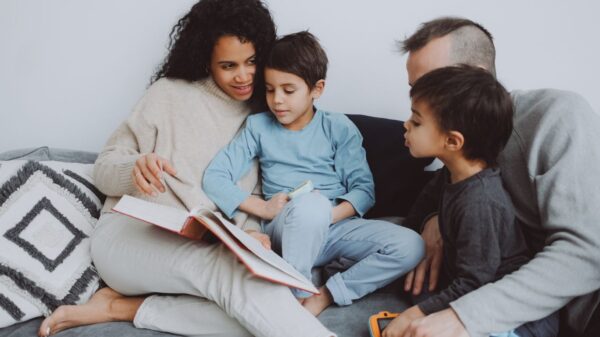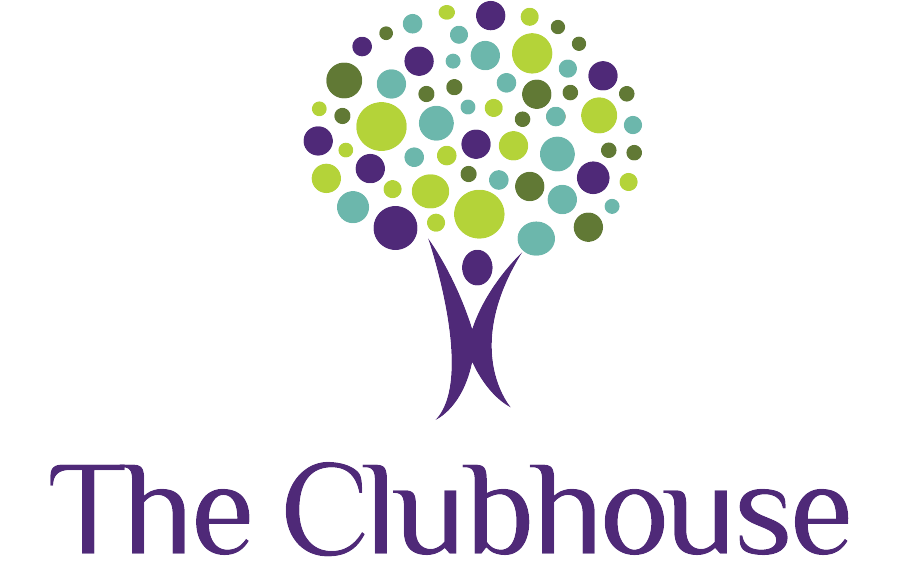Parent training programs help caregivers learn strategies to manage behaviors, improve communication, and encourage independence in everyday life. ABA therapy, a proven, evidence-based approach, focuses on building positive behaviors while reducing less desirable ones. Together, these methods create a powerful partnership between parents and therapists, leading to better outcomes for your child.
At The Clubhouse, we’re here to support you every step of the way. With tailored parent training and ABA therapy, we help families gain the tools and confidence to help their children thrive. You’re not alone—let’s navigate this journey together.
Learn More About How We Can Help Your Kid Succeed!
Benefits of Integration
Combining parent training with ABA therapy can make a big difference for children with autism and their families, offering support and meaningful benefits like:
Reinforcing Skills at Home
Parent involvement is a key part of making ABA therapy successful. By learning and using the same strategies at home that are practiced in therapy, parents help their kids build skills in everyday settings. Research shows that when parents are trained to use ABA techniques, children improve in communication, social skills, and adaptive behavior in more meaningful ways.
Consistency is what makes the difference. When parents reinforce skills at home, it helps bridge the gap between therapy sessions and real-life situations. For example, a child learning to express their needs during therapy can continue practicing this at home if parents use similar methods, leading to more natural and functional interactions.
Parent training not only benefits the child but also helps caregivers feel more confident and prepared to support their child’s progress. Kids who receive consistent reinforcement from parents tend to learn faster and achieve better outcomes over time.
The home is also the perfect place for children to practice—it’s familiar, comfortable, and safe. By actively applying ABA strategies, parents create a nurturing environment that encourages growth and independence while strengthening their bond with their kids. It’s a team effort that makes a lasting impact.
Improved Communication
When parents understand the basics of Applied Behavior Analysis (ABA), it creates a stronger partnership with their child’s therapists. This teamwork helps everyone stay on the same page, working toward shared goals. When parents and therapists communicate openly, children benefit from more consistent strategies, leading to better developmental progress.
By noticing patterns or challenges at home, parents can provide valuable insights that therapists can use to adjust treatment plans. This makes interventions more tailored and effective for the child. Open communication also helps parents feel heard and supported, fostering trust and building confidence in the process.
For example, here at The Clubhouse, our board-certified behavior analysts (BCBAs) collaborate closely with parents to develop individualized ABA programs tailored to each child’s specific needs. Through parent training programs, we provide caregivers with the knowledge and tools to support their child’s progress and communicate effectively with our team.
Learn More About How We Can Help Your Kid Succeed!
Reduced Parental Stress
Parenting can be tough, especially when managing developmental or behavioral challenges. It’s easy to feel overwhelmed, but building confidence and learning effective strategies can make a huge difference. Stress levels drop when parents feel more in control, and their child’s behavior often improves too.
Lower stress doesn’t just help parents, it creates a calmer, more positive home where children can thrive. In nurturing environments, kids can develop emotional and social skills better. Plus, when stress is lower, parents can respond more patiently, creating a cycle of positive interactions.
By equipping parents with the right tools and support, everyone benefits. Confident, balanced parents foster healthier, happier families, where both kids and parents grow together. It’s all about creating a space where everyone feels supported.
Key Components of Integration
Integrating ABA strategies into daily life requires a coordinated effort and understanding of key components. These include:
Individualized Goal Setting
When parents and therapists work together to set therapy goals, it ensures the focus is on what truly matters to the family. Open communication and trust are key. Parents can share their daily challenges and hopes for their kids, while therapists use their expertise to create a plan that fits into real life. Involving parents in goal-setting helps kids stay engaged and learn skills more effectively.
By focusing on what’s most relevant, such as helping a child transition between activities at home, therapy becomes practical and sustainable. Therapists break these goals into simple, achievable steps, using proven strategies to support success.
Flexibility is just as important. As life changes, therapy plans should adapt too. This partnership empowers parents, making them feel heard and valued. By working together, therapy becomes part of everyday life, helping not just the child but the whole family thrive.
Hands-on Training

Parents are key to the success of Applied Behavior Analysis (ABA) interventions, and hands-on training empowers them to support their child’s growth. Through accessible and collaborative instruction, parents learn practical strategies like modeling (watching professionals demonstrate techniques) and imaginary play (practicing in a safe space).
Feedback and ongoing support are also essential. By working closely with therapists, parents refine their skills, tackle challenges, and celebrate wins together. Programs that include guidance and encouragement result in significantly higher success rates for maintaining positive behavior changes.
The goal isn’t perfection—it’s learning how to adapt strategies to everyday life. Whether it’s using positive reinforcement during meals or managing transitions at the park, parents gain valuable tools that fit seamlessly into daily routines. This not only reinforces their child’s learning but also strengthens their connection, creating a supportive environment built on understanding and growth.
Ongoing Support
Regular check-ins and coaching sessions make a huge difference for parents navigating new challenges. They provide a safe, supportive space where parents can share concerns, ask questions, and adjust strategies based on their child’s progress. A 2024 study even shows that mothers who received consistent coaching acquired teaching behaviors for kids with ASD.
These sessions are tailored to each family’s unique needs, offering practical advice that fits into daily life. As kids grow and their needs change, this flexibility helps parents stay motivated and engaged. Plus, feeling heard and supported builds confidence and makes it easier to apply what they’ve learned.
The impact of these touchpoints is remarkable—families who stick with collaborative coaching see long-term improvements in dynamics, helping make everyday moments more manageable and rewarding for everyone involved.
Implementation Strategies
Implementation strategies play an integral role in helping parents support their child’s development effectively. These strategies may include:
Gradual Skill Building
When starting to implement strategies, it’s best to focus on one or two key skills at a time. Starting small helps parents feel less overwhelmed and more confident.
Simple goals, like encouraging eye contact or helping a child use basic speech sounds at home, can be a great starting point. Small wins in these areas not only build a parent’s confidence but also create momentum for tackling more complex strategies later.
Every family moves at their own pace, and that’s okay. The goal is to take manageable steps and create a positive, supportive environment. With each milestone, parents feel more empowered, children make progress, and everyone grows together.
Measuring Success
Helping parents track their child’s progress at home can make a big difference. While therapy sessions provide structured support, parents are the ones observing and guiding their children through everyday moments.
Simple tools like journals, apps, or charts can help parents easily note milestones, behaviors, and challenges such as how often their child communicates a need or completes a task. For example, here at The Clubhouse, we offer a parental portal where parents can access their child’s progress, receive personalized feedback, and track goals together.
These small, consistent efforts can reveal important patterns over time, allowing therapists to adjust interventions while also celebrating progress.
Regular check-ins with parents are equally important. These meetings aren’t just about reviewing the child’s progress, they’re also a chance to reflect on what’s working for the parents and offer guidance where needed.
Studies show that when parents get regular feedback, children see greater developmental gains. These conversations can also be moments to celebrate even the smallest victories, helping parents feel motivated and supported. It’s all about building a collaborative approach where parents feel valued, and children thrive.
Final Thoughts
The power of collaboration between parents and therapists is undeniable. When parents are empowered with hands-on training, ongoing support, implementation strategies, and tools to measure success, everyone benefits. Kids gain valuable skills, families grow stronger together, and everyday moments become opportunities for progress and connection.
The Clubhouse is committed to providing a comprehensive, collaborative approach to ABA therapy that supports not only children but also their families. By empowering parents through hands-on training and ongoing support, we aim to create a positive and lasting impact for everyone involved in the child’s development. So let’s continue to work together, learn from each other, and celebrate every step of this journey towards growth and success!

